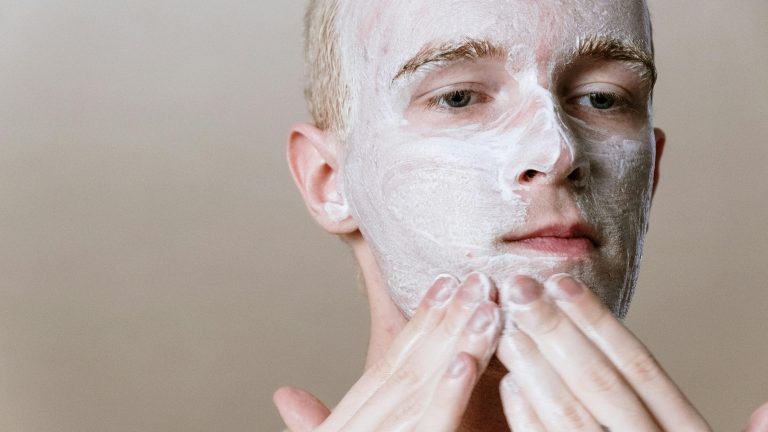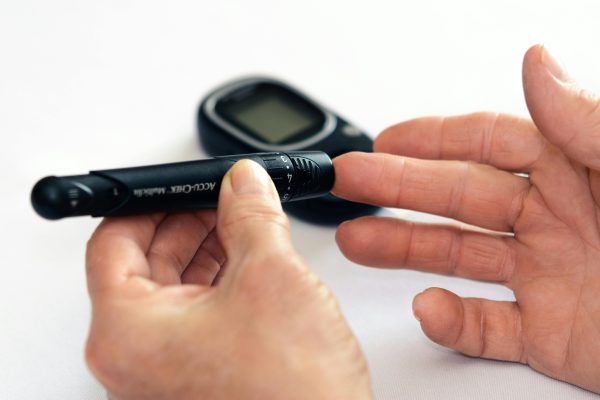- The Impact of Testosterone on Skin Health
- Managing Acne Through Hormonal Balance
- Testosterone and Skin Aging
- Enhancing Overall Appearance
- Conclusion
- FAQs: Testosterone and Skin Health
- Question: Is Testosterone Replacement Therapy Safe for Improving Skin Health?
- Question: Can Hormonal Imbalance Cause Acne Breakouts?
- Question: How Does Testosterone Influence Aging Skin?
- Question: Are There Natural Ways to Boost Testosterone Levels for Better Skin?
- Question: Can Excessive Testosterone Cause Skin Issues?
- Question: How Long Does It Take to Notice Skin Improvements with Testosterone Therapy?
The Impact of Testosterone on Skin Health
Understanding Testosterone’s Role
Testosterone, a hormone predominantly associated with male characteristics, plays a pivotal role in various physiological processes within the body. While its primary functions include the development of male reproductive tissues and the promotion of secondary sexual characteristics, testosterone also exerts significant influence on skin health. In this comprehensive guide, we delve into the intricate relationship between testosterone and skin, exploring its effects on acne, aging, and overall appearance.
Testosterone and Acne
Acne, a common skin condition affecting individuals of all ages, arises from the overproduction of sebum—a natural oil produced by the sebaceous glands in the skin. These glands are particularly sensitive to androgen hormones, including testosterone. Elevated levels of testosterone can stimulate the sebaceous glands, leading to an increase in sebum production. Consequently, excess sebum can clog pores and promote the growth of acne-causing bacteria, exacerbating acne breakouts.
Let’s delve into the fascinating connection between testosterone and acne:
Sebum Production and Acne:
-
- Sebaceous Glands: These tiny glands reside within our skin and are responsible for producing sebum, an oily substance.
- Androgen Hormones: Androgens, including testosterone, play a crucial role in regulating sebum production.
- Stimulation of Sebaceous Glands: Elevated levels of testosterone can stimulate these sebaceous glands.
- Excess Sebum: When the sebaceous glands go into overdrive, they produce excessive sebum.
- Clogged Pores: This excess sebum can clog pores, creating an environment conducive to acne formation.
- Bacteria Growth: Additionally, the trapped sebum provides a breeding ground for acne-causing bacteria.
- Result: The combination of clogged pores and bacterial growth leads to acne breakouts.
Testosterone’s influence on sebum production can impact acne development. Maintaining a balance is essential for healthy skin.
Managing Acne Through Hormonal Balance
- Acne and Testosterone:
- Androgens and Oil Production: Testosterone belongs to a class of male sex hormones called androgens. These androgens can overstimulate oil glands, leading to increased sebum production.
- Altered Skin Cells: Androgens can also change the skin cells lining hair follicles, making them stickier and more likely to clog pores.
- Balancing Hormones:
- Diet and Stress: A balanced diet, stress management, and proper skincare play crucial roles in maintaining healthy skin.
- Over-the-Counter (OTC) Treatments:
- Benzoyl Peroxide: Commonly used for acne treatment, it helps reduce inflammation and kill bacteria.
- Salicylic Acid: Effective for unclogging pores and preventing acne.
- Azelaic Acid: Helps control sebum production and has anti-inflammatory properties.
- Retinoids: Promote skin cell turnover and prevent clogged pores.
- Home Remedies:
- Apple Cider Vinegar: Mix 1 part apple cider vinegar with 3 parts water and apply gently to the skin using a cotton ball. Rinse after 5 to 20 seconds.
- Hydration and Cleansing: Keep your skin hydrated and cleanse it regularly to prevent excess sebum buildup.
Hormonal Therapies for Acne Management
In cases where hormonal imbalances contribute significantly to acne, hormonal therapies may offer effective solutions. These therapies aim to regulate hormone levels and minimize sebum production, thereby reducing acne severity. Common hormonal treatments for acne include oral contraceptives, anti-androgen medications, and hormone replacement therapy (HRT).
Testosterone and Skin Aging
Beyond its implications for acne, testosterone also influences the aging process of the skin. As individuals age, testosterone levels naturally decline, resulting in various skin changes. Testosterone plays a crucial role in maintaining skin elasticity, collagen production, and overall hydration levels. Consequently, diminished testosterone levels can contribute to the development of wrinkles, fine lines, and sagging skin.
Let’s explore how testosterone impacts skin aging in more detail:
- Collagen Production and Elasticity:
- Collagen: Collagen is a protein that provides structural support to the skin.
- Testosterone’s Role: Testosterone helps maintain collagen production, which is essential for skin elasticity.
- Declining Levels: As testosterone levels decline with age, collagen synthesis decreases, leading to sagging skin and wrinkles.
- Hydration and Moisture:
- Skin Hydration: Adequate hydration is crucial for youthful skin.
- Testosterone and Sebum: Testosterone influences sebum production, which contributes to skin hydration.
- Age-Related Changes: Diminished testosterone levels can result in drier skin, accentuating fine lines and wrinkles.
- Muscle Tone and Facial Structure:
- Muscle Mass: Testosterone affects muscle development.
- Facial Muscles: Facial muscles play a role in maintaining skin tautness.
- Effect of Declining Testosterone: Reduced muscle tone due to declining testosterone can lead to sagging skin and a less defined facial structure.
- Hair Growth and Skin Thickness:
- Facial Hair: Testosterone stimulates facial hair growth.
- Thicker Skin: Adequate testosterone levels contribute to thicker skin, which is more resilient against wrinkles.
- Sun Protection and Collagen Breakdown:
- Sun Exposure: Sun damage accelerates collagen breakdown.
- Testosterone’s Influence: Testosterone may affect the skin’s response to UV radiation.
- Balancing Act: Proper sun protection is crucial to maintain healthy skin despite hormonal changes.
- Individual Variability:
- Genetics: Genetic factors play a significant role in how individuals age.
- Lifestyle: Diet, exercise, stress management, and skincare routines impact skin health.
Testosterone’s decline with age contributes to skin changes, including wrinkles, sagging, and reduced elasticity. A holistic approach to skincare, including sun protection and lifestyle choices, can help mitigate these effects.
Addressing Age-Related Skin Concerns
To mitigate the effects of testosterone decline on skin aging, adopting a comprehensive skincare regimen is essential. Incorporating products enriched with retinoids, antioxidants, and moisturizers can help replenish lost nutrients, stimulate collagen production, and promote skin renewal. Additionally, lifestyle factors such as sun protection, balanced nutrition, and adequate hydration are paramount for preserving skin health and vitality.
Enhancing Overall Appearance
While testosterone influences specific skin conditions and aging processes, its impact extends beyond mere aesthetics. Skin health serves as a reflection of one’s overall well-being, with hormonal balance playing a crucial role in maintaining vitality and radiance. By prioritizing hormonal health through balanced nutrition, regular exercise, and stress management, individuals can optimize testosterone levels and enhance their overall appearance.
Integrating Holistic Approaches
In addition to conventional skincare practices, integrating holistic approaches can further support skin health and vitality. Practices such as mindfulness meditation, yoga, and herbal supplements can promote hormonal balance, reduce inflammation, and nourish the skin from within. Embracing a holistic lifestyle not only benefits skin health but also fosters overall physical and emotional well-being.
Conclusion
In summary, the intricate relationship between testosterone and skin health offers valuable insights into optimizing our skincare routines. As we’ve explored the impact of testosterone on acne, aging, and overall appearance, it’s clear that hormonal balance plays a crucial role in maintaining vibrant skin.
But fear not! Armed with knowledge and a touch of self-care, we can navigate this journey with confidence. Remember, skincare isn’t just about products—it’s about nurturing ourselves from the inside out. So, let’s embrace mindful practices, nourish our bodies with wholesome foods, and bask in the rejuvenating power of sunlight.
As we bid adieu, let’s carry forward this wisdom and approach skincare with a blend of expertise and kindness. After all, healthy skin is not just a goal—it’s a reflection of our well-being and inner vitality.
FAQs: Testosterone and Skin Health
Question: Is Testosterone Replacement Therapy Safe for Improving Skin Health?
Yes, when administered under the supervision of a qualified healthcare professional, Testosterone Replacement Therapy (TRT) can be safe and effective for improving skin health. However, it’s essential to discuss potential risks and benefits with your healthcare provider.
Question: Can Hormonal Imbalance Cause Acne Breakouts?
Yes, hormonal imbalances, including elevated testosterone levels or fluctuations in estrogen and progesterone, can contribute to acne development by increasing sebum production and pore congestion.
Question: How Does Testosterone Influence Aging Skin?
Testosterone plays a vital role in maintaining skin elasticity and collagen production. However, declining testosterone levels with age can lead to reduced collagen synthesis, contributing to the formation of wrinkles and sagging skin.
Question: Are There Natural Ways to Boost Testosterone Levels for Better Skin?
Yes, adopting a healthy lifestyle that includes regular exercise, balanced nutrition, stress management, and adequate sleep can help optimize testosterone levels naturally, leading to improved skin health.
Question: Can Excessive Testosterone Cause Skin Issues?
Yes, excessive testosterone levels can lead to skin issues such as acne, oily skin, and hair loss. It’s essential to maintain hormonal balance to prevent these issues from occurring.
Question: How Long Does It Take to Notice Skin Improvements with Testosterone Therapy?
The timeline for noticing skin improvements with testosterone therapy can vary depending on individual factors such as age, overall health, and treatment regimen. However, some individuals may begin to see noticeable improvements within a few weeks to months of starting therapy.
Testosterone and Bone Density: Unlocking the Key to Male Bone Strength
Elevate Your Transformation: 13 Male Testosterone-Boosting Habits for Growth
The Powerful Link Between Testosterone and Mental Health: Uncovering the Truth





